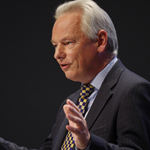 On 6 March the Cabinet Office Minister Francis Maude made a speech to the annual conference of the Information Commissioner’s Office, in which he addressed the problems of data sharing in the public sector.
On 6 March the Cabinet Office Minister Francis Maude made a speech to the annual conference of the Information Commissioner’s Office, in which he addressed the problems of data sharing in the public sector.
He called data the new resource of the 21st century and compared the internet to the invention of the printing press in the 15th century. However, the public sector had not kept pace with the changes that the internet had allowed.
“In the past,” he said, “the public sector has not been clever or effective at sharing key intelligence. Whether that’s sharing important data with the public, with the private sector or with each other.”
He joked that: “Sometimes even within Government departments we’re not joined up – hard as that may be to believe.”
“One of the most frequent complaints I hear from doctors and care workers and data professionals is just how difficult essential data sharing can be," he said. "This is because we make it difficult, even when data sharing is in the national or public interest. “It’s clearly wrong to have social workers, doctors, dentists, Job Centres, the police all working in isolation on the same problems.”
He cited the fragmentation of legislation on the issue as a demonstration of the lack of progress on the issue. “It’s a sign that we have not caught up with the digital age that today there is no single source of law regulating the collection, use and sharing of personal information. Instead there is a lack of understanding between and within public administrations as to what can and cannot be done, and so we get situations where officials deny access to data despite there being legitimate reasons and significant benefits to sharing it.”
All that was due to change, the Minister said: “In May we will publish proposals that will make data sharing easier – and, in particular, we will revisit the recommendations of the Walport-Thomas Review that would make it easier for legitimate requests for data sharing to be agreed with a view to considering their implementation.”
The targets of the joined-up approach would be fraudsters and other criminals, and waste in the public sector itself. The speech was widely followed by those involved in forensic technology, as the bringing together of disparate data sets is a specialism in itself within the expert witness community. Indeed, a number of firms dealing with the issue are to be found in the Expert Witness Directory.